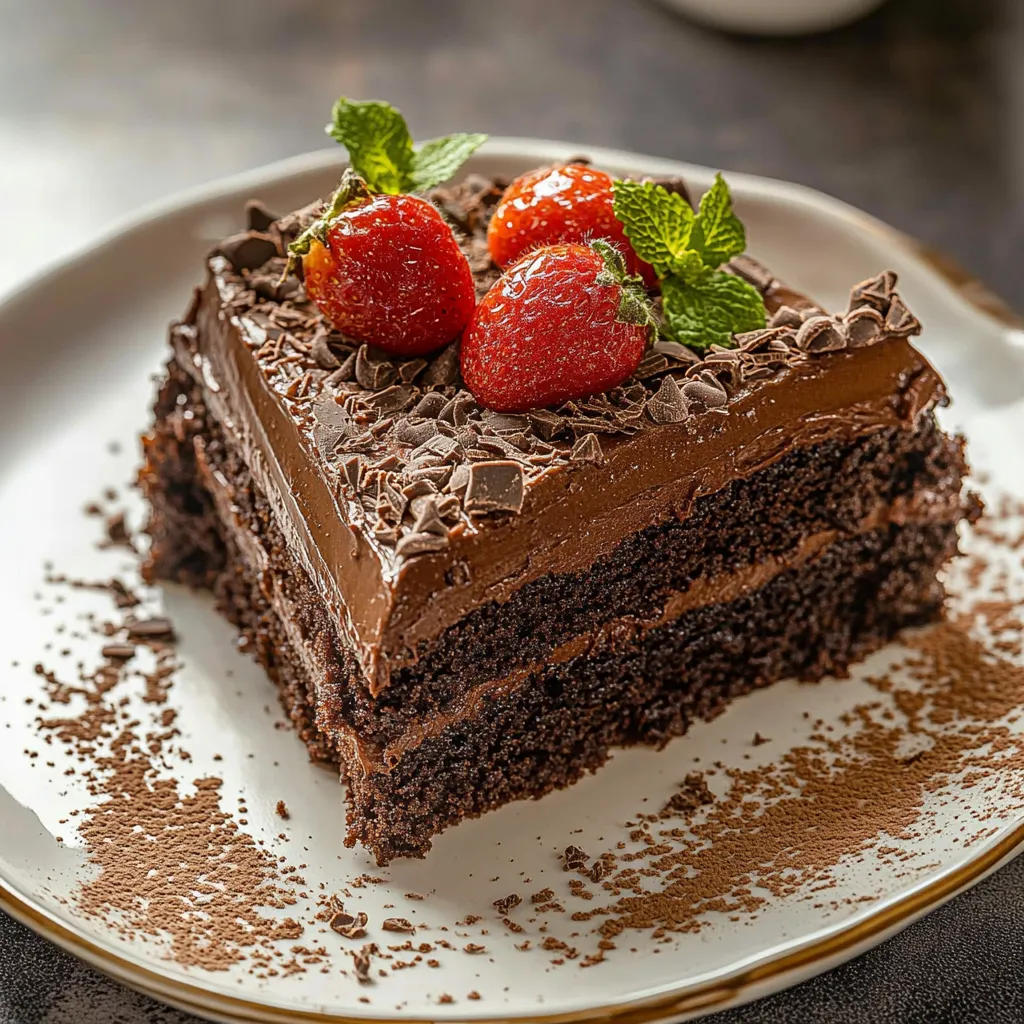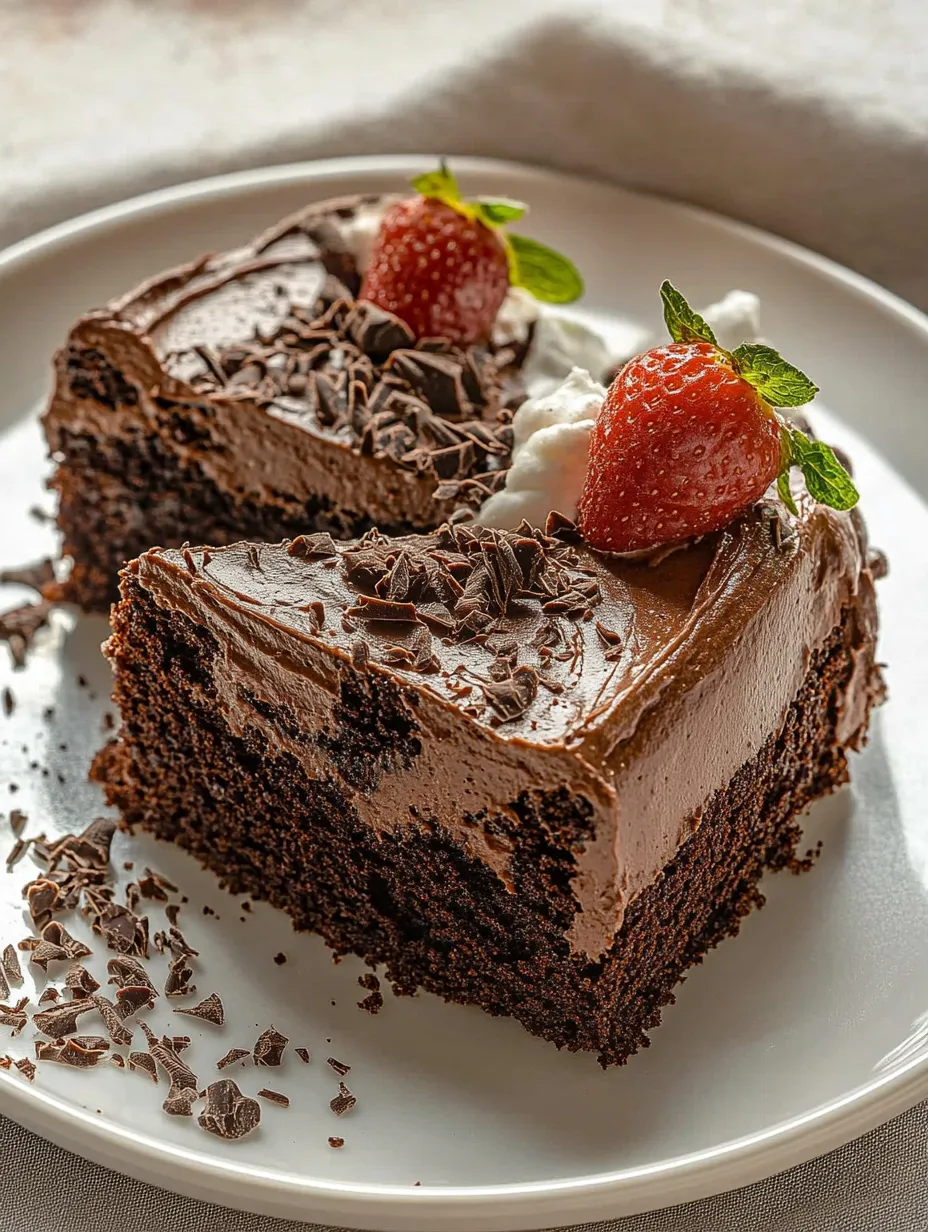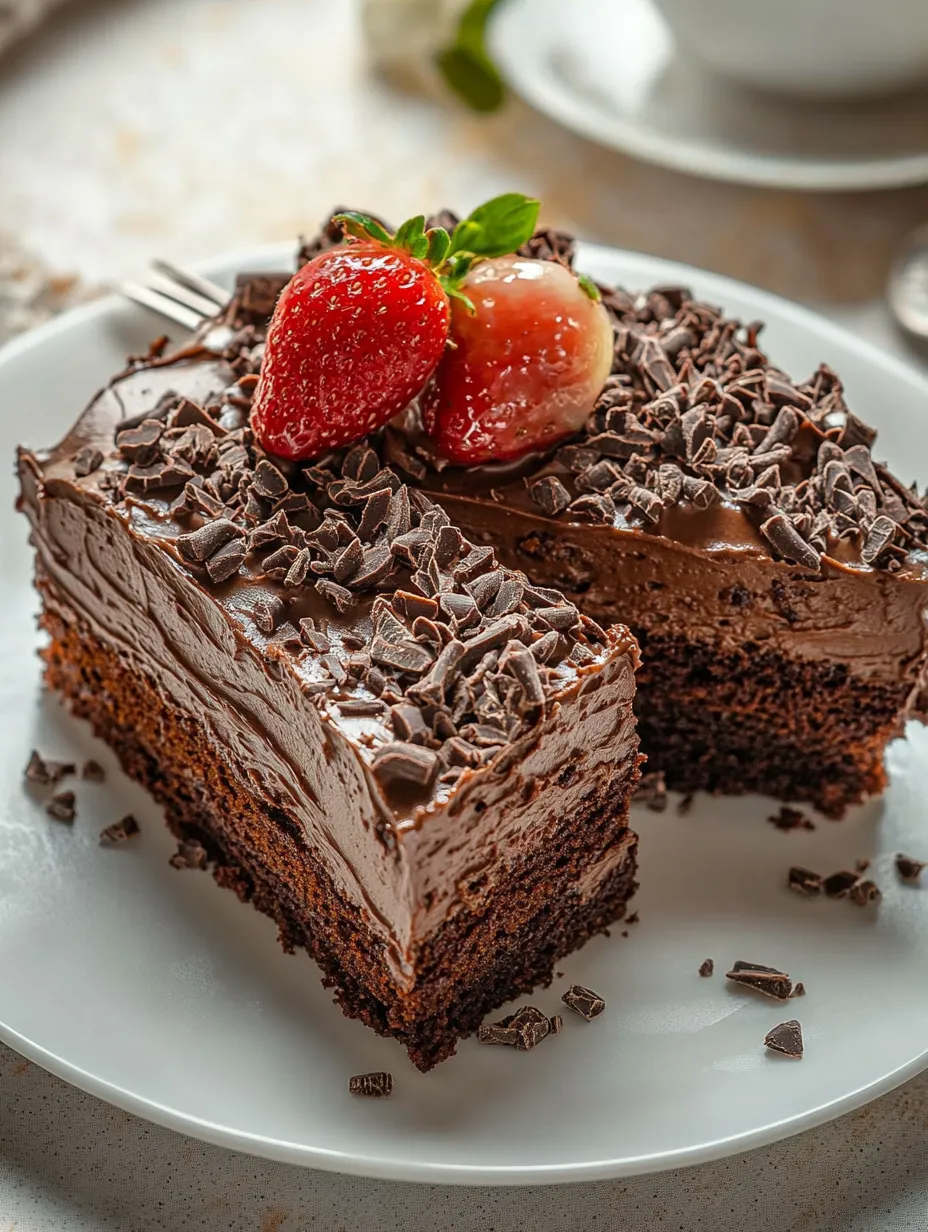 Save
Save
This low carb Chocolate Mousse Cake satisfies serious chocolate cravings without the carb overload. Rich, smooth and incredibly decadent, it happens to be gluten free, grain free, sugar free and keto friendly - though nobody would guess from the taste.
I've always been the designated baker in my family, making something special for birthdays and holidays. When I started cutting back on sugar a few years back, I refused to give up my favorite tradition. This cake was born from necessity during my sister's birthday - she wanted chocolate, I needed low carb. The whole family devoured it, with my sugar-loving nephew asking for seconds without realizing it wasn't "regular" cake. My proudest baking moment!
Quality Ingredients
- Almond flour: Super fine variety creates the perfect crumb texture. The coarse kind makes everything grainy and disappointing.
- Coconut flour: Adds lightness while keeping carbs low. A little goes a long way - it absorbs moisture like crazy.
- Sugar free chocolate: Dark chocolate gives this cake its intense flavor and gorgeous deep color. I prefer Lily's brand but any sugar-free option works.
- Monk fruit sweetener: Both powdered and granular forms needed for different components. Provides perfect sweetness without any weird aftertaste.
- Heavy cream: Creates that mousse-like frosting that makes this cake special. The fat content matters - don't substitute with half and half.

I discovered monk fruit sweetener after experiments with various sugar substitutes left me disappointed. Some left cooling sensations, others had bitter aftertastes. My husband's aunt, who's been baking keto for years, recommended monk fruit during a family dinner. It revolutionized my sugar-free baking - no strange flavors, just clean sweetness that performs like sugar in recipes.
Baking Method
- Egg preparation
- Start with room temperature eggs in a large bowl and beat them thoroughly. Cold eggs don't incorporate well with the other ingredients. I usually take mine out about 30 minutes before I plan to start baking.
- Sweetener incorporation
- Add the granulated monk fruit, vanilla extract, apple cider vinegar and baking powder to your beaten eggs. The acid from the vinegar activates the baking powder, creating better rise in your cake layers. Don't skip this seemingly strange ingredient!
- Butter blending
- Make sure your butter is genuinely softened, not just slightly less cold. Properly softened butter should yield easily when pressed but still hold its shape. Mix it thoroughly with your wet ingredients until completely smooth with no visible chunks.
- Chocolate melting
- Melt your chocolate slowly and carefully - either in short microwave bursts or using a double boiler. Overheated chocolate becomes grainy and unpleasant. Let it cool slightly before adding to your batter to prevent cooking the eggs.
- Flour folding
- Combine your almond and coconut flours separately before adding to wet ingredients. Add the flour mixture gradually, folding gently rather than vigorously mixing. This keeps your cake tender instead of tough.
- Mousse frosting creation
- Wait until your cake layers are completely cool before frosting. I've ruined more than one cake by rushing this step. The heat melts the frosting, creating a disappointing mess instead of the thick, mousse-like topping that makes this cake special.
My mother-in-law follows a keto diet for health reasons but always felt left out during family celebrations. The first time I made this cake for her birthday, she got teary-eyed halfway through her slice. She hadn't had proper birthday cake in three years and couldn't believe something so compliant with her diet could taste so indulgent. Now it's her requested cake every year, and several other family members have asked for the recipe.
Presentation Suggestions
This cake looks stunning on a simple white cake stand with chocolate shavings scattered across the top. For dinner parties, I serve individual slices with a dollop of whipped cream and half a fresh strawberry. The bright red berry against the deep chocolate creates gorgeous contrast. During the holidays, I've added sugar-free peppermint extract to the frosting and decorated with small candy cane pieces for a festive twist that disappeared within minutes at our neighborhood gathering.
Flavor Variations
While the deep, dark chocolate version remains my favorite, I've experimented with several variations. Adding espresso powder to both the cake and frosting creates an incredible mocha version. Stirring chopped hazelnuts into the batter gives it a Nutella-like quality my kids adore. For my husband's birthday, I added orange zest to the batter and a drop of orange oil to the frosting - the chocolate-orange combination was spectacular. The base recipe welcomes creativity.
Storage Solutions
This cake keeps beautifully in the refrigerator for up to a week, though it rarely lasts that long in our house. The frosting firms up when chilled, creating an almost truffle-like texture that some family members actually prefer. For make-ahead convenience, you can freeze unfrosted cake layers wrapped tightly in plastic wrap for up to three months. The frosting doesn't freeze well on its own but works fine once applied to the cake. I've frozen completed cake slices for late-night chocolate emergencies with great success.

I've made this chocolate mousse cake more times than I can count over the past three years - for birthdays, holidays, dinner parties and sometimes just because it's Tuesday and we deserve chocolate. What started as a dietary necessity has become our family's signature dessert. There's something deeply satisfying about creating something so decadent that happens to be healthier. When guests ask for the recipe and seem shocked to learn it's sugar-free and low-carb, I consider that the highest compliment a baker can receive.
Common Recipe Questions
- → Can I substitute the monk fruit sweetener with something else?
- Yes, you can use erythritol, allulose, or stevia in place of monk fruit. For erythritol and allulose, use the same measurements. For stevia, you'll need much less as it's significantly sweeter - check your specific brand's conversion chart. You can also use regular sugar if you don't need the cake to be sugar-free or keto.
- → Why does the recipe call for apple cider vinegar?
- Apple cider vinegar helps activate the baking powder, creating a better rise in low-carb baked goods that don't contain gluten. It also helps balance the flavors and you won't taste it in the finished cake. You can substitute with white vinegar or lemon juice if needed.
- → Can I make this cake dairy-free?
- You can substitute the butter with coconut oil in the cake, but the texture may be slightly different. For the mousse, you could use full-fat coconut cream instead of heavy whipping cream, though the flavor will have coconut notes. Chill the coconut cream overnight and use only the solid part for whipping.
- → How do I know when the cake is done baking?
- The cake is done when a toothpick inserted into the center comes out clean or with a few dry crumbs. Almond flour cakes can be tricky - they may look done on the outside but still be underbaked inside. If the top is browning too quickly, you can cover it with foil for the last 10-15 minutes of baking.
- → Can I make this cake in advance?
- Yes! You can bake the cake layer 1-2 days in advance and store it covered at room temperature. The mousse is best made shortly before serving, though the completed cake will keep well in the refrigerator for up to 4 days. For the freshest taste, add any garnishes just before serving.
